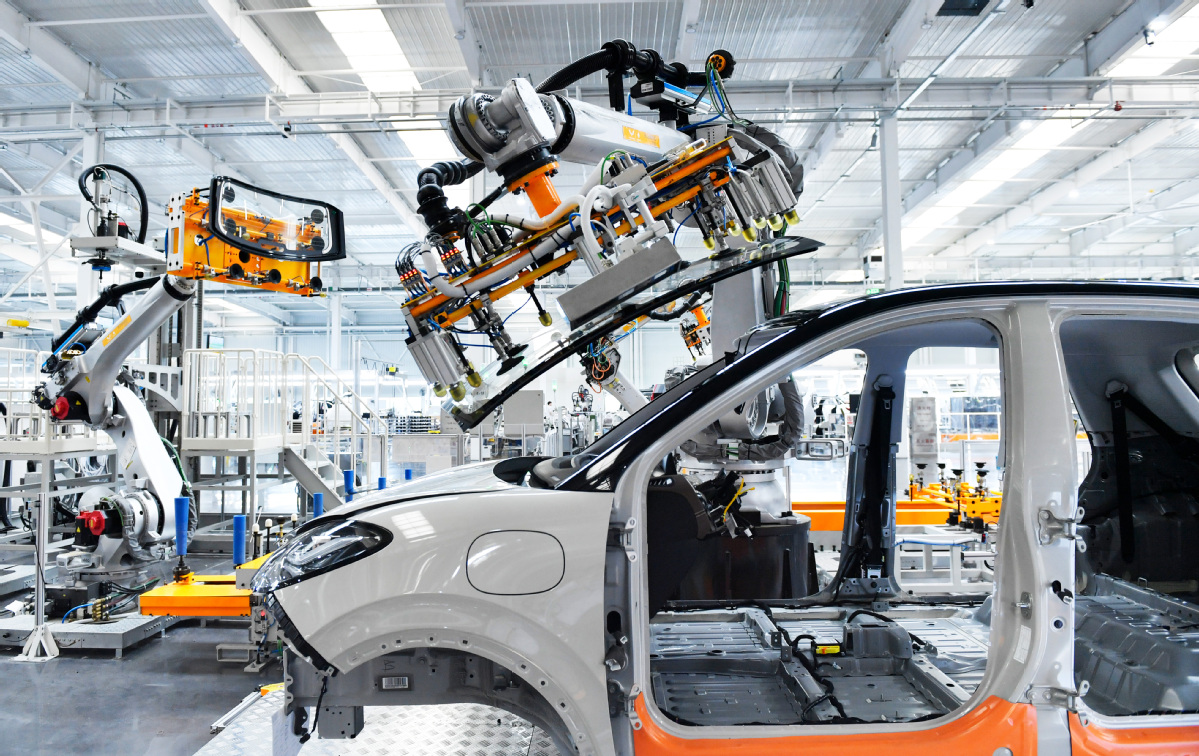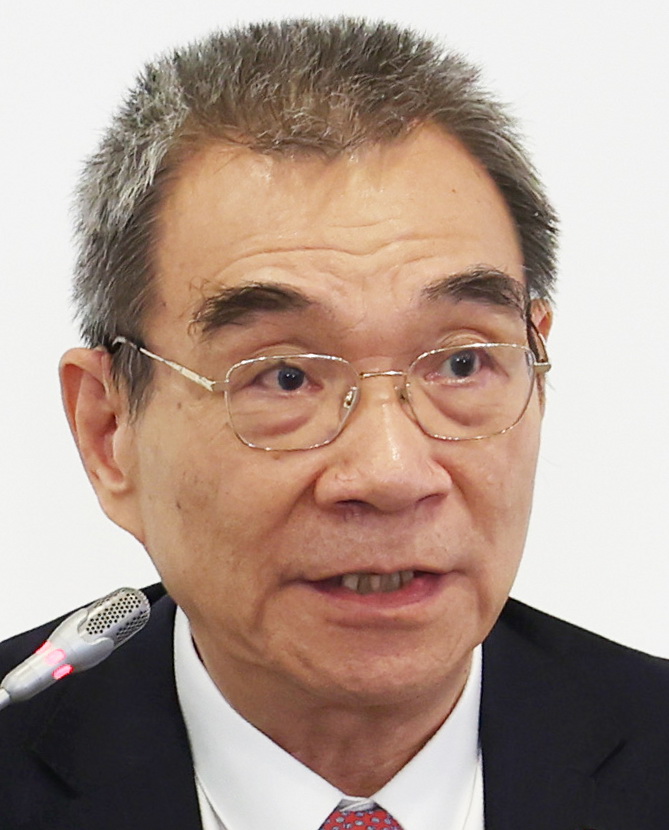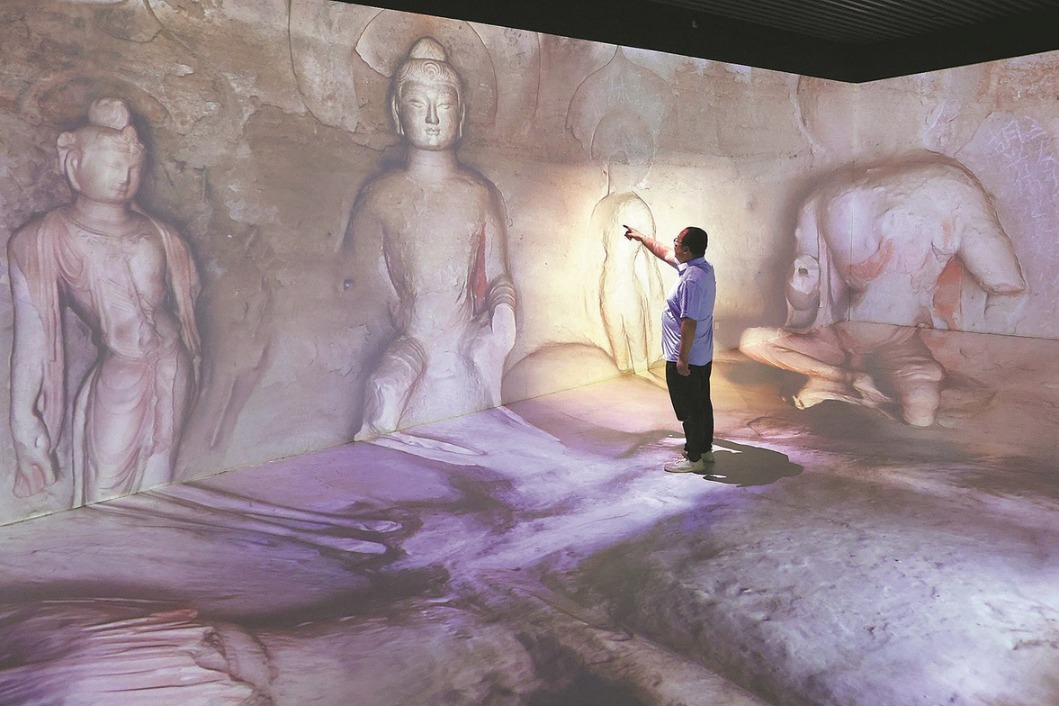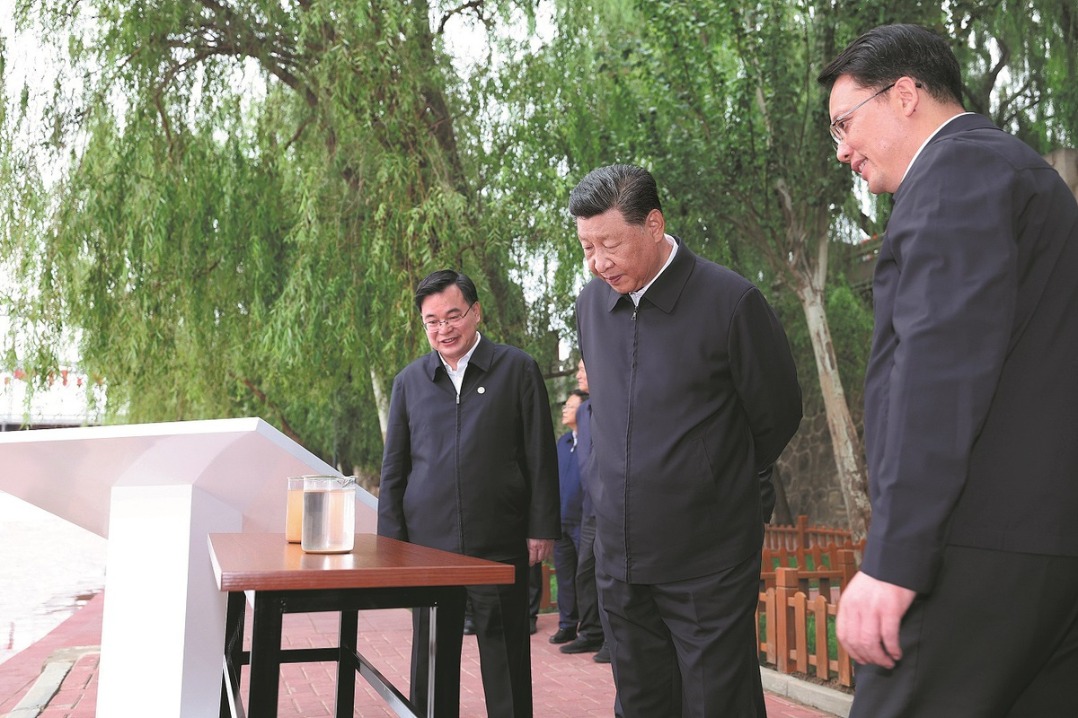Expert: Pursuit of new tech should be sensible
Economist stresses focus on local strengths in race for development


While fostering new quality productive forces, China's different regions should try to leverage their own endowments and comparative advantages rather than rushing to invent new technologies in frontier areas, without factoring in their local conditions, a senior economist told China Daily in an exclusive interview.
Justin Yifu Lin, dean of Peking University's Institute of New Structural Economics, said applying new technologies in traditional sectors should be treated as part of the drive to harness new quality productive forces.
Regions with development gaps should measure their progress compared to their own past rather than shifting their focus to pursuit of success in frontier activities, which could result in haphazard or uneven development.

There are two different types of new quality productive forces: one that invents new technologies and one that applies them, said Lin.
"Regions with gaps in development should use new technologies to improve productivity. It's essential to follow the principle of seeking truth from facts and develop according to competitive advantages."
His comments came after the third plenary session of the 20th Central Committee of the Communist Party of China adopted a resolution on further deepening reform comprehensively to advance Chinese modernization.
The resolution, unveiled on Sunday, detailed a set of meticulously crafted reform plans, and called for improving existing institutions and mechanisms to foster new quality productive forces in line with local conditions.
Lin said different regions have different competitive advantages, and they need to be realistic about their respective development stage, to better foster new quality productive forces.
"As long as you use new technologies to improve your productivity, it's also a new type of productive force for you. You need to compare yourself with your past performance instead of comparing yourself with (others') frontier activities."
Lin said that the plenum demonstrated important commitment of the Chinese leadership to "using reform and opening-up as a way to overcome the challenges and capture opportunities", thereby promoting high-quality development to boost Chinese modernization.
China must better leverage the role of the market and tap the opportunity of technological innovation to enhance productivity, especially as it stands at the same starting line with other countries for the Fourth Industrial Revolution, an opportunity China "cannot afford to miss", he said.
He highlighted that China has several advantages to tap the potential of the Fourth Industrial Revolution and foster new quality productive forces, which include a large pool of talent, huge domestic market, the most comprehensive manufacturing ecosystem and a positive role played by the government.
On promoting the deep integration between the real economy and the digital economy, he said China's strengths include having one of the best digital infrastructure in the world and a large economy generating vast amounts of data in production and consumption.
However, he stressed the need to improve the definition of the property rights of data to further utilize data as a new production factor.
Lin further said China needs to reform its financial system to better mobilize financial resources for supporting innovations, while implementing fiscal reforms to better balance spending responsibilities between local and central governments. Encouraging the development of venture capital and patient capital will be important improvements, he said.
Li Dongsheng, founder and chairman of Chinese consumer electronics maker TCL Technology Group Corp, said, "China's new growth drivers come from industrial transformation and upgrading, and technological innovation."
The country can accelerate the formation of sound systems and mechanisms for fostering new quality productive forces by giving play to the leading role of enterprises in sci-tech innovation and stimulating their innovation vitality, he said.
























